theft
Latest

Walmart uses AI camera tech to track checkout theft at 1,000 stores
Walmart's early use of AI at its stores isn't just for the sake of convenience. The retailer has confirmed to Business Insider that it's using camera-based computer vision tech to deter theft and losses at its checkouts (including self-checkouts) in over 1,000 stores. The simply titled Missed Scan Detection program notifies attendants if an item moves past a scanner without an actual scan, giving staff a chance to step in. Most of the incidents are unintentional, such as forgetful shoppers or fatigued cashiers, but Walmart is clearly hoping this will deter thieves hoping to make off with unscanned items.
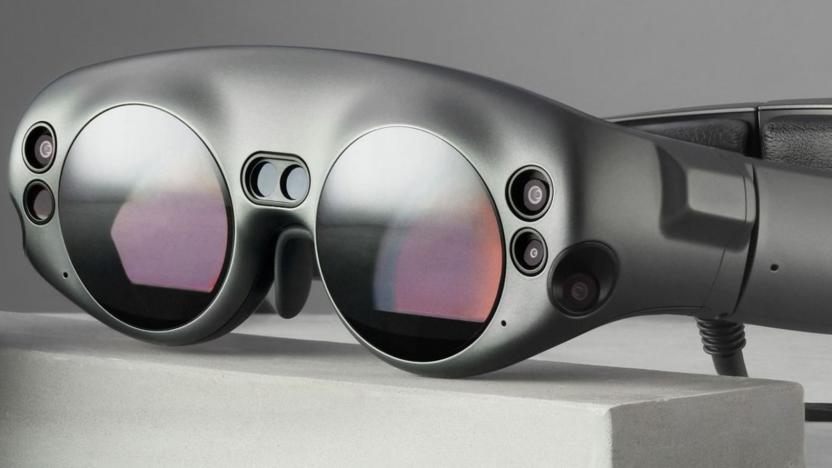
Magic Leap says Nreal founder stole its mixed reality secrets
The founder of Nreal -- the company which debuted its $499 mixed reality glasses at this year's CES -- has been accused of stealing AR secrets from former employer, US-based Magic Leap. The Florida startup, which has been working on a mixed reality device for years, says that ex-engineer Chi Xu exploited confidential information to "quickly develop a prototype of lightweight, ergonomically designed, mixed reality glasses for use with smart phones and other devices that are strikingly similar" to the Magic Leap One device.
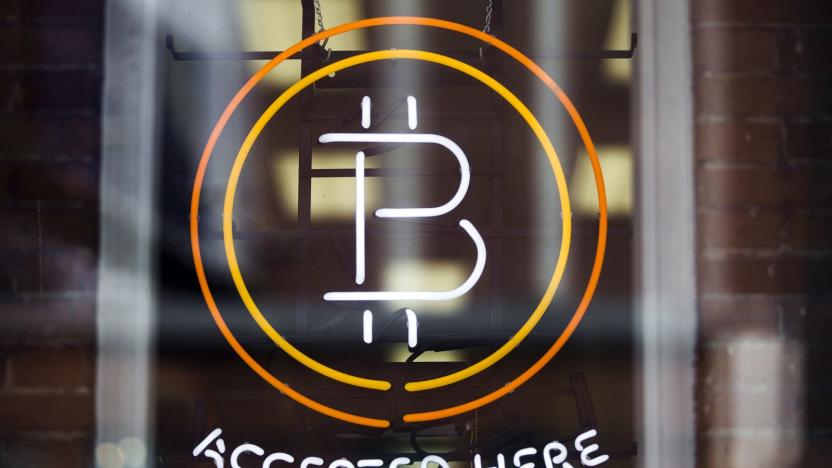
The FBI wants help from victims of QuadrigaCX's cryptocurrency collapse
Remember that wild cryptocurrency story from earlier this year? The one where a Canadian exchange shut down shortly after co-founder and CEO Gerald Cotten died, claiming he was the only one who could access its wallets. Wallets that should've stored assets for 76,000 customers with a value of around $200 million (CAD). If any of that was your digital money then yeah, you probably do remember. Investigations into the company, QuadrigaCX, have suggested it did not have the money to satisfy its deposits, and naturally, law enforcement is sniffing around. Its customers were located around the world, and the FBI is circulating a form for customers to get in touch with it, the IRS, the Washington D.C. AG's office and the DoJ's Computer Crime and Intellectual Property Section.

Card skimming hack targets 201 campus stores in North America
The infamous Magecart card skimming hack has been used to make life miserable for college students. Trend Micro has discovered that a hacking group, currently nicknamed Mirrorthief, relied on the scripting technique to steal card data from 201 online campus stores across the US and Canada on April 14th. The team slipped its scripts into the checkout pages of the sites (all created by a common developer, PrismRBS) to harvest full card details, names, addresses and phone numbers. The number of people affected by the heist isn't yet clear.
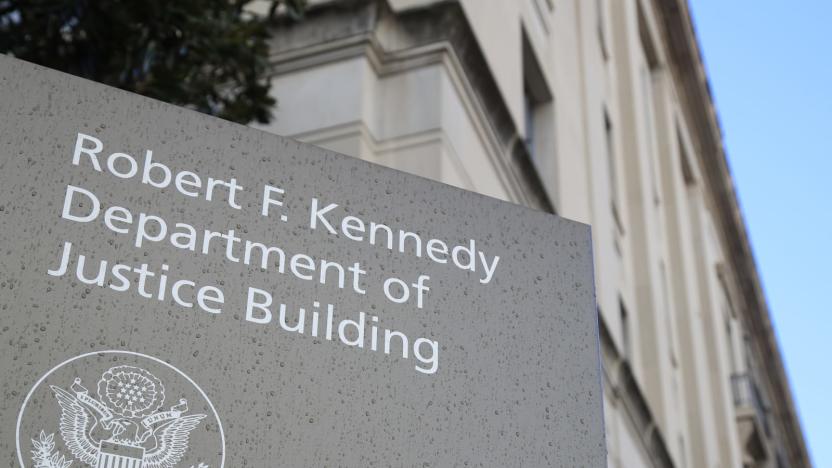
US convicts Romanians over scheme that hijacked 400,000 computers
Two Romanian residents are about to face prison time for a particularly large digital crime spree. A federal jury has found Radu Miclaus and Bogdan Nicolescu guilty for a scheme that stole credit card data and other sensitive info by hijacking over 400,000 computers located primarily in the US. The duo reportedly developed custom malware in 2007 that would pose as a legitimate organization (such as the IRS, Norton or Western Union) and infect PCs when users opened an attachment. From then on, the perpetrators stole data and money by injecting fake websites (such as bogus eBay auctions), mining cryptocurrency in the background and amassing contact information that could be used to infect more targets.

Second Apple employee accused of stealing self-driving car tech
Apple is grappling with another employee accused of stealing autonomous vehicle trade secrets. NBC News has learned that the FBI arrested Jizhong Chen for allegedly trying to swipe self-driving car tech and pass it along to a Chinese competitor. After an employee saw him taking photos in a sensitive work area, the company conducted an investigation that discovered thousands of sensitive documents on his personal computer, including roughly a hundred photos from inside an Apple building. They also found that he'd recently applied to work at that competitor.
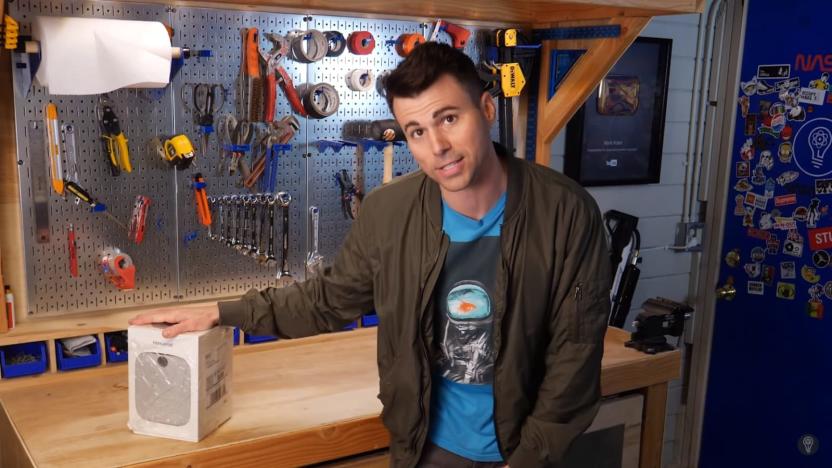
Creator of viral glitter bomb video admits parts of it were staged
This week, it seemed the entire Internet rejoiced after a former NASA engineer created a custom glitter bomb designed to strike back against package thieves. His impressive invention resulted in a hilarious video of would-be criminals being coated in glitter and having their nostrils assaulted with a fart spray. But it seems the clip, which racked up more than 42 million views in just a few days, was a little too good to be true -- its creator admits parts of it were staged, seemingly without his knowledge.

NASA engineer creates glitter bomb package to thwart parcel thieves
Because we live in a world where we can't have nice things, package theft is a real problem, and in recent times unscrupulous individuals stealing parcels from porches have prompted police sting operations, as well as longer-term tech innovation, such as Amazon's smart locks. But neither of these things do a whole lot for theft victims longing for sweet, sweet revenge. Now, former NASA engineer Mark Rober has devised a frankly glorious solution that guarantees instant vengeance.
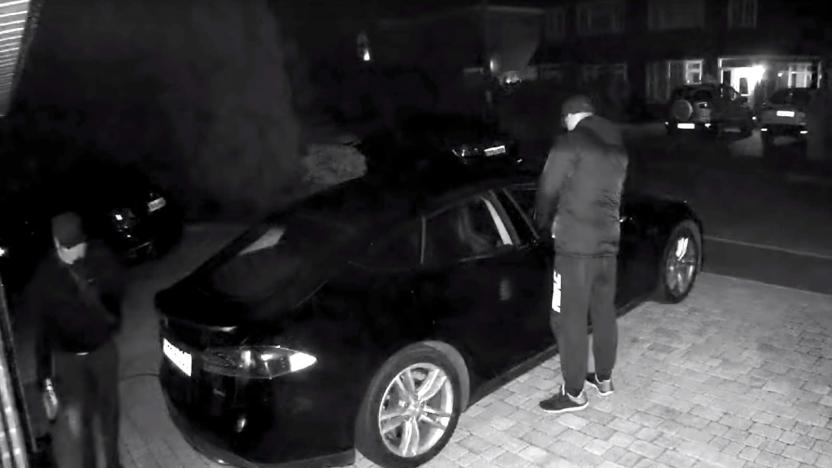
Stealing a Tesla just got harder thanks to a new update
Last month, an unlucky Tesla owner managed to record his own Model S being stolen via a sneaky keyfob "relay" tablet hack, part of a wave of European thefts in which the vehicles were never recovered. Tesla has now fought back via a new Model 3 update that might not stop the original theft, but will make it possible for owners and police to track their stolen cars.
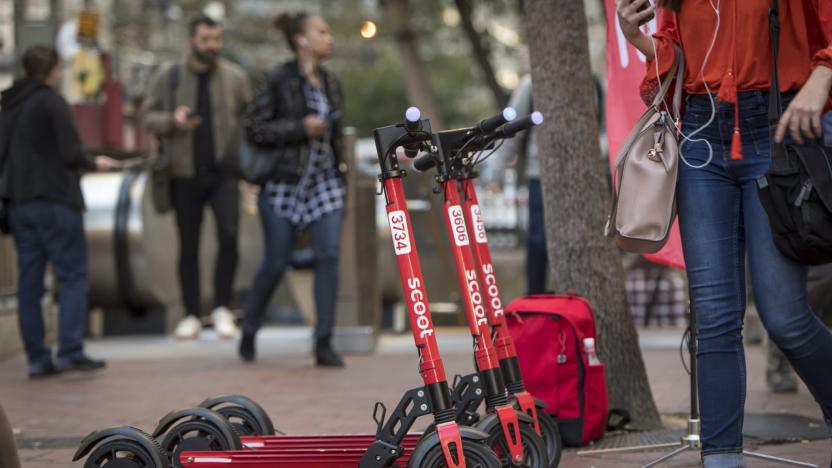
Scoot will add locks to its scooters to combat theft and vandalism
In August, San Francisco's Municipal Transportation Agency awarded two companies, Scoot and Skip, permits to operate their scooters in the city. The scooter pilot program has now been running for a month and Scoot says it has learned a few things during that time, including that its Kick scooters are a lot easier to steal and vandalize than it once thought. Because of that, the company will start adding locks to its scooters come December.

Winklevoss twins claim cryptocurrency guru stole 5,000 bitcoins
The Winkevoss twins are back in the news for their involvement in the cryptocurrency world, but this time they likely wouldn't want to celebrate. The New York Times has learned that the two sued crypto investor and ex-convict Charlie Shrem for allegedly stealing 5,000 bitcoins in 2012 -- no small amount when they'd be worth roughly $32 million today. The Winklevoss Capital Fund sent Shrem $250,000 in 2012 to buy bitcoins on its behalf, but delivered $189,000 worth based on the price at the time. The figure was lost in a larger dispute over an investment in Shrem's BitInstant, but it's clearly more important now.
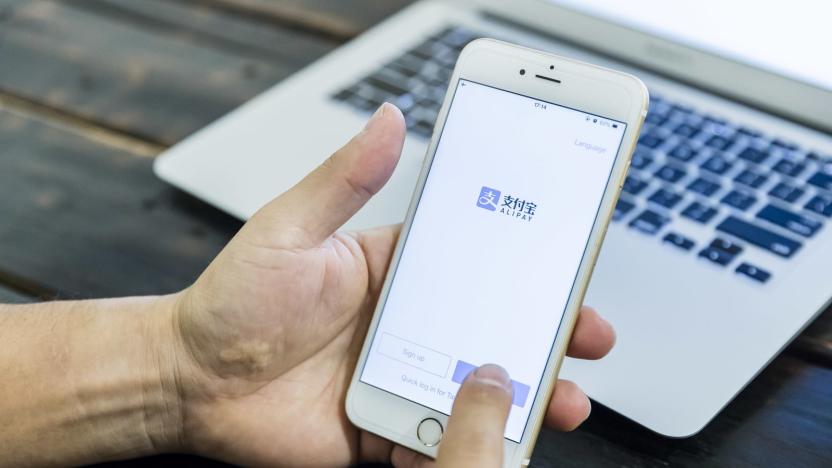
Stolen Apple IDs reportedly used for mobile payment theft in China
Users of two major mobile payment services in China -- Alipay and WeChat Pay -- have reported unauthorized Apple App Store spending in recent days, with some losing nearly $300 through fraudulent transactions. The companies say that stolen Apple IDs are to blame, the Wall Street Journal reports, and Alipay has asked Apple to investigate. In the meantime, Alipay is telling its customers to minimize potential losses by reducing how much money can be used from their accounts without a password.

17 people charged in a string of Apple store robberies
A number of individuals have been arrested in conjunction with a series of Apple store robberies that resulted in the theft of over $1 million worth of devices. The California Attorney General's office said in a statement on Thursday that seven were arrested earlier in the week, another suspect was in custody and nine others had been charged with the crime. Since then, at least two additional individuals have been arrested. In a string of robberies, groups rushed retail stores, grabbed products on display and left in just a few seconds.
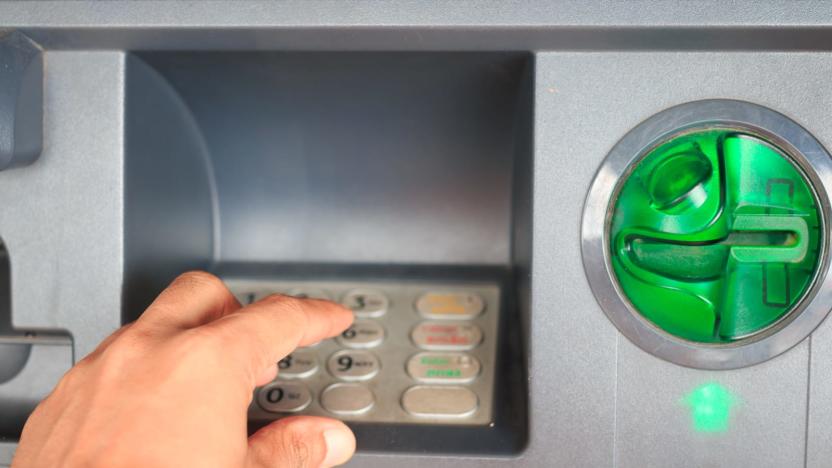
ATM 'jackpotter' sentenced to year in US prison
One of the men involved in an ATM jackpotting scheme in January this year is already facing punishment. A district court in Connecticut has sentenced Argenys Rodriguez to just over a year in prison, plus two years of supervised release and $121,355 in restitution, for collaborating on hacks that slipped malware into bank machines and forced the devices to spit out their cash. Rodriguez had pleaded guilty to bank fraud in June and will start his sentence on November 26th.

AT&T faces $224 million lawsuit over cryptocurrency theft
Cryptocurrency investor Michael Terpin has filed a lawsuit against AT&T, claiming that the company's negligence led him to be robbed of nearly $24 million worth of cryptocurrency. Terpin alleges that in January, while AT&T was his service provider, three million tokens were taken from him through a "digital identity theft" of his cellphone account, according to Reuters. In the 69-page complaint filed with the US District Court in Los Angeles, Terpin says, "AT&T's willing cooperation with the hacker, gross negligence, violation of its statutory duties and failure to adhere to its commitments in its privacy policy," enabled the theft.
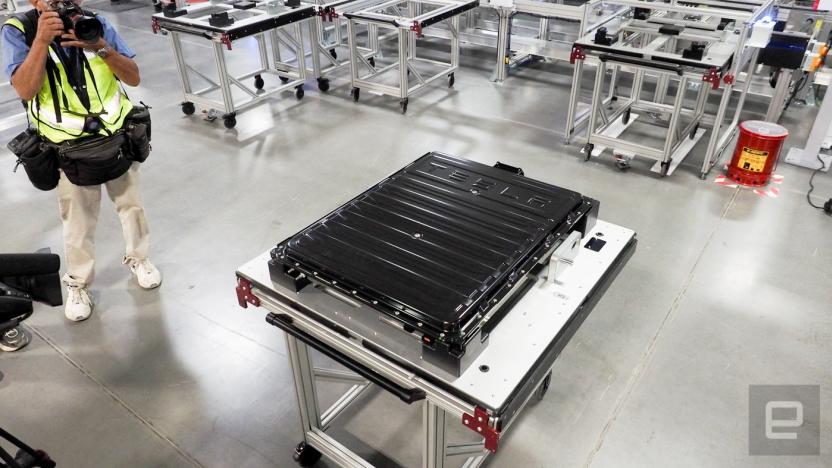
Musk emails alleged Tesla saboteur, 'You're a horrible human being'
The story of Tesla suing a former employee for alleged theft and sabotage has taken another odd turn. While the company increased security at its battery producing Gigafactory after claiming a friend of Martin Tripp said he'd threatened to "shoot the place up," the Washington Post released emails from yesterday between Tripp and CEO Elon Musk. In them, Tripp denied trying to frame others for his actions, while accusing Tesla of waste and putting cars on the road with safety issues. In response, Musk said that having millions of dollars in scrap is "not news" and that Tripp was in line for legal penalties due to breaking his word as well as framing fellow employees. It was an exchange unlike anything we've ever seen released from a CEO, but as usual, Musk does things very differently. Tripp told CNNMoney that despite the lawsuit's claims, he was fired because he tried to tell investors and the public about allegedly damaged battery modules installed in Model 3s, excessive scrap stored in a dangerous manner and inflated Model 3 production numbers. According to the Post, Tripp said a report earlier this month posted to Business Insider about scrap metal at Tesla was based on his documents. The company, in turn, said his complaints were exaggerated or misconstrued.

Amazon return policy abusers sentenced to nearly six years in prison
Three individuals have just received lengthy prison sentences for their involvement in a scam that defrauded Amazon out of $1.2 million. Erin and Leah Finan, a couple living in Indiana, pleaded guilty last year to running the scheme. For two years, the Finans ordered over 2,700 electronic items from Amazon including GoPro digital cameras, Xboxes, smartwatches, tablets and laptops and then reported them as damaged. Once Amazon replaced the products, they would sell them to a third person -- Danijel Glumac -- who then sold them to a buyer in New York. In all, the Finans are said to have made around $750,000 running the scam while Glumac made approximately $500,000.
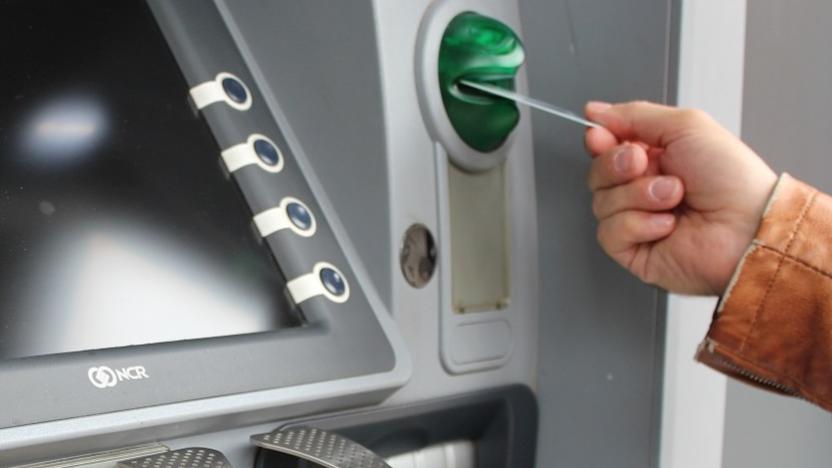
NYPD says 'Skim Reaper' device could curb ATM fraud
Skimming costs US consumers more than a billion dollars a year. The practice, which sees devices illegally installed on ATMs and gas station pumps to "skim" credit card information from unsuspecting users, can affect everyone. Even cybersecurity expert Patrick Traynor, who's now come up with a solution that could end the nefarious crime for good.

Reddit bans communities trading firearms and drugs
Reddit's bid to clean up its communities now includes what those communities trade. The social site has updated its policies to ban the trade of firearms, explosives, drugs (including alcohol and tobacco), services with "physical sexual contact," stolen goods, personal info and counterfeits. Accordingly, Reddit has shut down numerous subreddits that either directly traded in these goods or were clearly meant to enable those exchanges, including r/gunsforsale, r/stealing (yes, it existed) and r/darknetmarkets.

US carriers testing replacement for two-factor authentication
Major US cell phone carriers are working on a mobile authentication system that could create a new open standard. Under the banner of the Mobile Authentication Taskforce, AT&T, Sprint, T-Mobile and Verizon say they have a solution which could roll out before the end of the year: next-generation, multi-factor mobile authentication (hopefully they'll come up with a snappier name for it before launch), which is intended to provide better security than the two-factor authentication we've become accustomed to (and which is not without its flaws).





